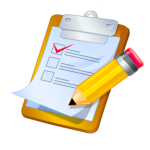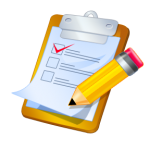
Planning a holiday visit to your elderly parent? Have concerns and errands to take care of when you visit Mom but not sure what is most important or how to manage the visit?
Here is a checklist you can use to prepare for and better manage your visit. You may also wish to visit Aging Wisely’s recent article on Warning Signs for Long-Distance Caregivers.
Before the visit:
- Prioritize things you need to do before you leave.
- Explain to those you are leaving behind the nature of your trip and when you will be returning (you may wish to talk to your employer or find out if they offer an Employee Assistance Program that may offer resources to help caregivers).
- Make appointments to meet providers – this helps to develop rapport and serve notice that you are an involved caregiver who will be present to monitor services from time to time. Keep a list of people you need to speak with when you visit, and make sure that care providers know where and how to reach you. Making appointments beforehand can save you a lot of time and ensure you can get an appointment.
- Write out advance questions for providers and be prepared to write down answers.
- Talk to other family members about your visit, concerns, what they have observed, etc.
- Try not to overschedule the visit, to allow time for visiting, reminiscing (bring along family photos or video) and to accommodate your loved one’s pace.
During the Visit:
- Talk to your loved one so that the two of you can decide together what needs to be done and who can help.
- When working with the care recipient(s) to help them access the services you find, be sensitive to their views of the situation. They may be concerned about having strangers in their home or having trouble facing change. Even though dealing with these issues can be frustrating, it’s important to maintain a positive focus. Tips include explaining that the services are designed to help them to remain independent and having someone else your parent respects recommend the service.
- Use a relaxed approach that doesn’t threaten the older adult’s independence. One way may be to suggest that they would be doing you a favor by accepting some help.
- Take your elders out while you are visiting to see how they function in the community and with others (if he/she still drives, going along for a drive may give you an idea of current driving skills or concerns too).
- Take time to reconnect with the person by talking, listening to music, going for a walk, or doing other activities you enjoy together. A visit that is “all business” won’t be good for either of you.
- Be with the older person for support when a new service is established, such as a new caregiver, doctor or living situation.
- Accompany the older family member to a doctor’s appointment – speak to his or her physician in person. Establish a relationship with the doctor and office nurse, learn the medications that the older person takes, what pharmacy is used and its telephone number, and understand the conditions. Find out how you might remain in contact with the doctor’s office; identify key office staff working with the doctor. Be sure that there is a HIPAA Release Information Form on file at the doctor’s office so that you can talk openly with the doctor, and keep one for yourself.
- Make sure that doctors and insurance companies are aware of who is the medical or durable power of attorney. The doctor should have a copy in the chart.
- Plan to meet with other care providers and have them bring you up to date with the care recipient’s progress.
- Meet with an attorney specializing in elder law to discuss estate planning if not yet done, or to update information.
- Gather all insurance information and meet with financial planner to make sure policies are current and appropriate (auto, homeowners, Medicare, Medicaid, Medigap, long-term care, disability).
- Find all legal documents and ensure you have copies of all at home (you may also want to consider online, secure storage). Key legal and financial documents might include the following: Advance Planning documents (living will, health surrogate, pre-need guardian); Birth certificate, Veteran’s paperwork; Social security card; Marriage certificate, divorce decree; Will and/or trust; Power of attorney.
- Set up a filing system for the care recipient and include all pertinent documents involving the care recipient.
- Take home a copy of a local senior resource directory if available and possibly a local yellow pages (or use online search tools).
- Make a list of the informal local resources: neighbors, religious-activity-related friends, and other relatives who can be part of the care recipient’s support network. Meet with these people so they can share their observations about how the person is doing. Ask if there are any behavioral changes, health problems, or safety issues. Have someone stop by and visit (weekly or daily), and contact you if they observe anything unusual. Also arrange for social visits. This may be a good time to arrange a home caregiver to begin establishing a relationship and helping your loved one with certain tasks.
- Assess the home safety each time you visit: locks, telephone access, and tests smoke alarms. Look for uneven flooring, loose rugs, and poor lighting. Install grab bars or ramps to make the home safer. Check out EasyLiving’s Falls Prevention Checklist.
- Watch for any new influences or changes to your loved one’s circle of support for potential scams or undue influence.
- Look for sweepstakes mailings, large bank withdrawals, or other evidence of difficulty managing finances.
EasyLiving, Inc. supports long-distance caregivers with quality in-home care services to support your loved one and ensure ongoing safety and well-being. We use an online system to communicate to you, ensure accountability and provide continuity.
We also offer professional advocacy and care management through our Aging Wisely care managers. When you need to quickly understand local services or bring in someone you can trust to be your local “eyes and ears” and expert resource, a geriatric care manager is an ideal resource.
Contact us if you are planning a visit to a loved one in the Pinellas County/Clearwater, Florida area and want to discuss options or if you are visiting and notice concerns. We’re here 24/7 for you!
Thank to Rosalyn Roker, who completed a care management internship with Aging Wisely, LLC for sharing training information from which this article draws material. If you would like more information on her research sources, contact us for more information.







